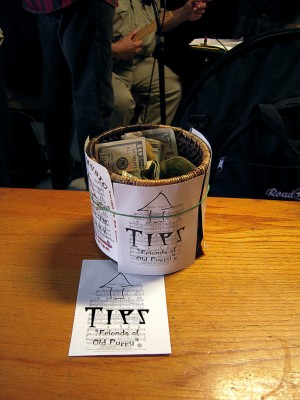This month, the Wall Street Journal reported that a new IRS rule is causing restaurants and bars—including those in hotels—to rethink the common practice of adding automatic gratuities to parties of more than six customers.
“Starting in January 2014, the IRS will begin classifying those automatic gratuities as service charges, which it treats as regular wages, subject to payroll tax withholding—instead of tips, which restaurants currently leave up to the employees to report as income.”

As a Hospitality Instructor, students regularly ask me about tipping (and specifically, what is appropriate). From there, our discussions always become more interesting, as we discuss who tips and who doesn’t, often related to a customer’s country of origin. I’ve repeatedly heard from employees and students in the industry that Europeans do not tip, and some years ago, in Dallas, certain of my employees refused to serve South American and especially Brazilian customers because they seriously believed that they would not tip.
These sound like unproductive stereotypes and biases, and indeed they were; my job as a manager was to persuade employees that this mindset would lead to poor service, and thus guarantee a poor tip. We could not discriminate against millions of customers, regardless of any truth attached to these assumptions. For in truth—no matter their country of origin—tourists on a tight budget behave very similarly.

Having said that, my observations through traveling and working internationally have proven tipping to be more ingrained in American culture, for several reasons. First off, we are a country of charities and generosities; not only is philanthropic giving embedded in our society, but it is sanctioned by governments through tax breaks. Furthermore, during high school and college, many Americans—including myself—pay off their college expenses by working in service jobs, where the primary earnings come in the form of tips.
Despite the stereotype that Europeans don’t tip, the word originated in an English tavern. A bartender in the UK noticed some of his patrons were too thirsty to wait patiently, and noisily called attention to themselves in order to get their next drink faster. His simple solution was to label a small tin cup at the end of the bar counter with the phrase “to ensure prompt service.” Thus, the word TIPS was coined.

Here, we see a return to the root definition of “tip”: prompt service. In turn, I sometimes wonder why it should be expected to provide a tip to servers who have not provided timely, courteous service. However, even when service causes reason for complaint, most Americans—myself included—would not leave a restaurant without leaving the minimum 15%.
In turn, the IRS rule adds yet another twist to our complicated culture of tipping. Until now, automatic gratuity may have reduced servers’ motivation to provide exceptional service, but soon it will also lack the tax-free benefits of a traditional tip. Those who choose to eliminate the large party service charge will expose servers to the risk of a minimized tip, but a tax on automatic gratuity offers reason enough to reconsider this widely accepted practice.

